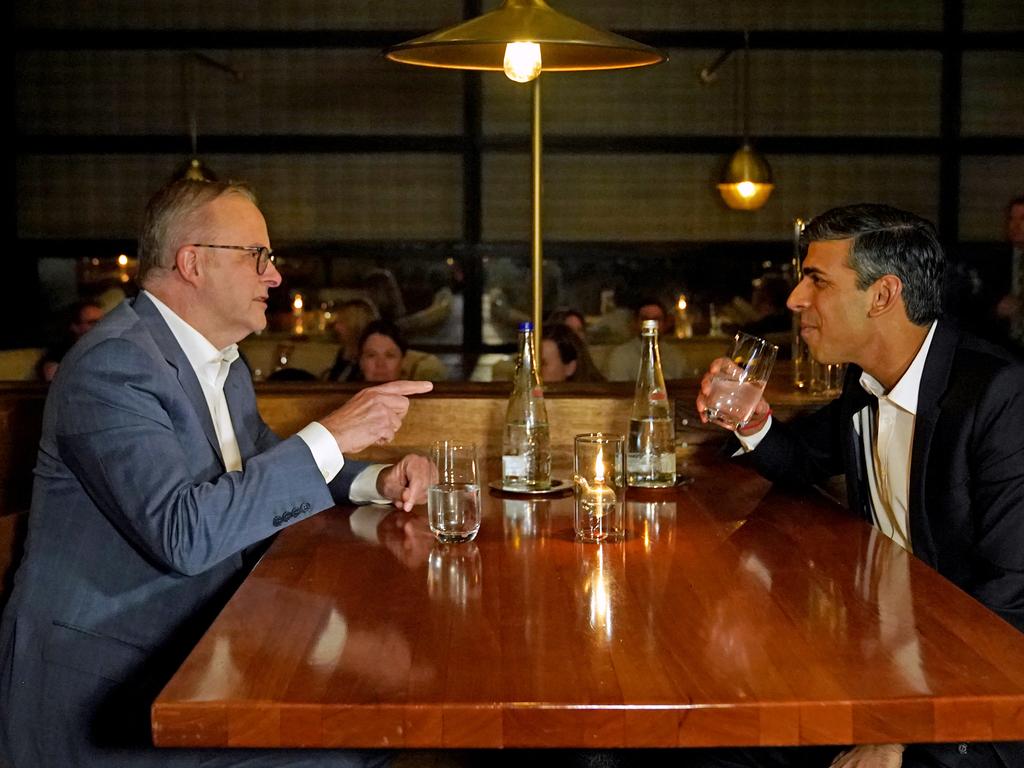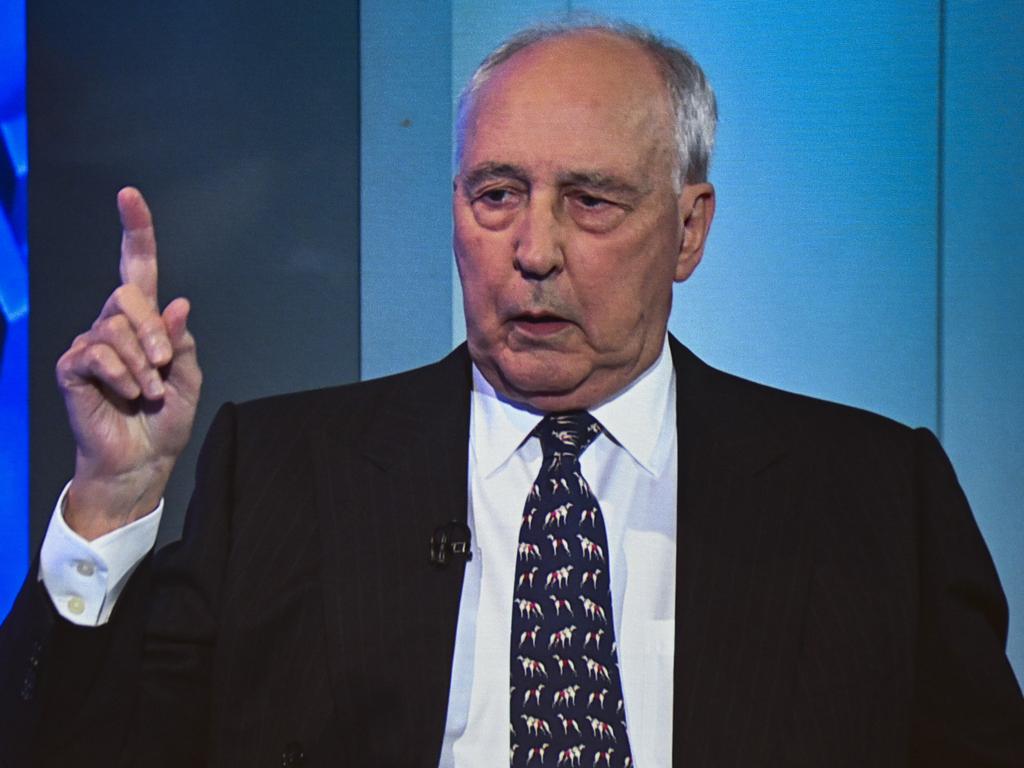Battle for millennial hearts won by passion


A decade of Albanese success is not remotely guaranteed. No one should be counting chickens yet. And it would be a stunning reversal of recent political history. In the 16 years since March 2007, Australia has had, shockingly, eight prime ministers: Howard, Rudd, Gillard, Rudd (again), Abbott, Turnbull, Morrison, Albanese. There is a malaise throughout Western politics. But very few of our peers have shared such leadership instability, perhaps only Britain. In the past seven years they’ve had five PMs: Cameron, May, Johnson, Truss, Sunak. Each of our six elections, from 2007, has resulted in a different PM being in power from the PM at the previous election.

Instability like this robs a nation of the ability to undertake long-term projects, or confront difficult policy issues, or even to settle anything by an election. It produces terrified bureaucratic incrementalism.
Albanese has a chance of reproducing the political pattern that prevailed under Bob Hawke. On national security, Hawke was a tough-minded, pro US alliance, defence hawk, and if anything a Cold War warrior. He wept over the Chinese Communist Party’s military slaughter at Tiananmen Square and he embraced the Reagan administration in Washington with enthusiasm and intelligence. Consequently, even people who didn’t normally support Labor respected and trusted Hawke.
So far Albanese has been effective and consequential on national security. Defence Minister Richard Marles has negotiated a brilliant AUKUS deal. Penny Wong has been a highly successful Foreign Minister, not least in the South Pacific where so many vital Australian interests are at stake.

Hawke reformed the economy in a free market direction. Albanese’s government shows no sign of that. National security and economic reform were part of Hawke’s social democratic identity. But so too was a welfare system that worked more effectively for the poor, and championing, always at a pace the electorate could accept, “progressive” social reform, from land rights to non-discrimination.
Albanese is so far pulling off a similar combination. On climate change and the proposed voice to parliament, Albanese is winning deep loyalty from the millennials, who now outnumber baby boomers. If Albanese succeeds, he will be something like Labor’s John Howard. Both Albanese and Howard are routinely underestimated. Howard was trusted and effective on national security, and also championed economic reform. He didn’t advocate progressive social issues. He was a conservative. But whereas Albanese is building up deep credit with millennials, Howard had that same credit with baby boomers. The boomers were once lefties but they grew conservative as they grew older.

Like Howard, Albanese comes across, quite authentically, as a likeable, normal person who, because he seems secure in his skin, relates OK in media as different as Sky News or millennial audience FM radio stations. Like Howard, Albanese readily appears on most media. I think those conservatives who won’t appear on unsympathetic media make a (understandable) mistake. So long as they behave professionally and with good humour, they win even if they’re getting beaten up. Audiences are smart enough to see when a guest is badly treated.
All of which brings us to the politics of the voice. I am opposed to the voice on principle. (Those interested could read a lengthy paper I wrote on it for the Centre for Independent Studies, considering it from first principles, under Indigenous issues at cis.org.au). But I don’t want to canvass the issues in-principle here. These are the most important consideration and should determine people’s responses.
But it’s also worth considering the politics. If Albanese is successful in getting the voice referendum passed he will be all but unbeatable electorally. He will be the millennials’ superhero. He would be the first modern Labor leader to succeed in changing the Constitution, substantially, in a progressive direction.

In political terms, it doesn’t matter what attitude the opposition takes if the voice is successful. Albo wins and they’re toast. Everyone knows most Liberals and Nationals oppose the voice in principle. If they’ve grudgingly endorsed it, or just stood aside, they get zero credit. Their base hates them, and why would any progressive millennial prefer reluctant Liberal acceptance to Labor’s championing of the cause? Albanese would then have substance on national security and symbolism on the voice. Unless the economy totally collapses, he more or less couldn’t lose the next election.
What should the Liberals do? If they believe the voice is wrong in principle, they should oppose it. But they must do so with energy and commitment. If the voice then loses, the Liberals have on their side the greatest ally you can have in democratic politics, the majority of the electorate.

Leaders who lose referendums are normally in a lot of trouble. Britain’s Cameron lost the Brexit referendum and lost his prime ministership. Boris Johnson unexpectedly won Brexit and a huge parliamentary majority followed.
Would the Liberals cement millennial hostility by successfully opposing the voice? I think the reverse is true. It would give them the chance of staging a comeback with millennials. When Howard defeated the republican referendum, Malcolm Turnbull said Howard would go down as “the prime minister who broke this nation’s heart”. Howard increased his majority at the next two elections.
Demographic groups can change their minds. Donald Horne in The Lucky Country in 1964 predicted Australia would soon enough become a republic because young people supported the republic strongly. Those young people changed their minds on the republic.

The intellectual and political battle over interpreting a defeat for the voice would be critically important. If the Liberals argued and demonstrated they were motivated by a commitment to equal citizenship, and a love for Aboriginal Australians that refused to put them in a separate civic category at odds with all other Australians, if they went down what you might call the Jacinta Price road, they would have a chance of changing millennials’ minds. But they only have a chance at that kind of victory if they oppose the voice passionately and on first principles, as part of a positive vision of inclusive citizenship.
Nothing in politics is predestined. You only lose for sure if you won’t fight. But at this stage Albanese is miles and miles ahead of them.







Anthony Albanese has a chance of securing a completely unpredicted dominance in Australian politics, which could last several electoral cycles. This arises out of genuinely good performance in national security, and what seems an Araldite-like grip on millennial voters. Let me give you the headline tip. If the referendum for the voice is successful, Albanese will win a slashing re-election victory.